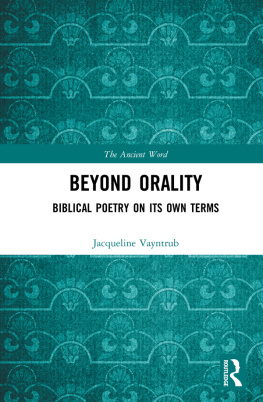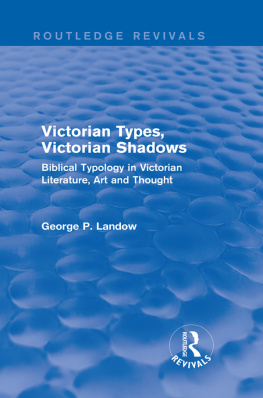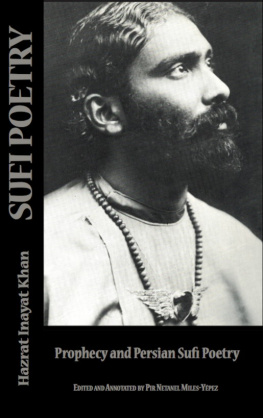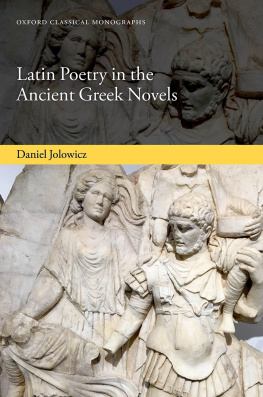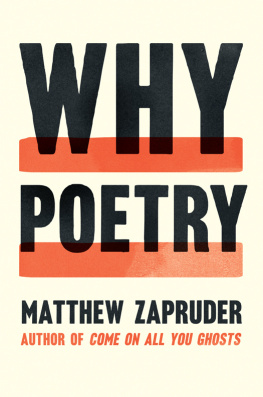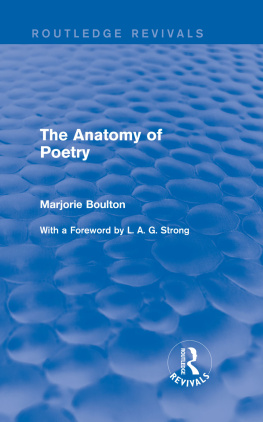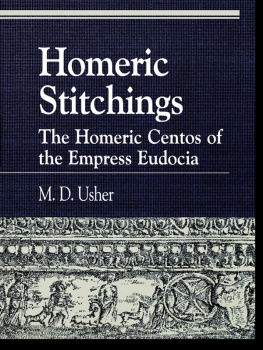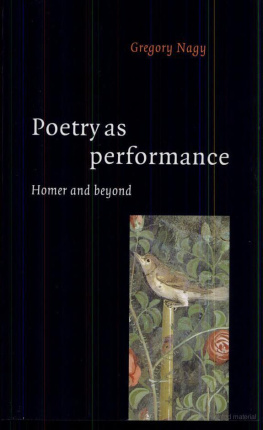Beyond Orality
Central to understanding the prophecy and prayer of the Hebrew Bible are the unspoken assumptions that shaped themtheir genres. Modern scholars describe these works as poetry, but there was no corresponding ancient Hebrew term or concept. Scholars also typically assume it began as oral literature, a concept based more in evolutionist assumptions than evidence. Is biblical poetry a purely modern fiction, or is there a more fundamental reason why its definition escapes us?
Beyond Orality: Biblical Poetry on its Own Terms changes the debate by showing how biblical poetry has worked as a mirror, reflecting each eras own self-image of verbal art. Yet Vayntrub also shows that this problem is rooted in a crucial pattern within the Bible itself: the texts we recognize as poetry are framed as powerful and ancient verbal performances, dramatic speeches from the past. The Bibles creators presented what we call poetry in terms of their own image of the ancient and the oral, and understanding their native theories of Hebrew verbal art gives us a new basis to rethink our own.
Jacqueline Vayntrub is assistant professor of Hebrew Bible at Yale Divinity School, USA.
The Ancient Word
Series editor: Seth Sanders, Professor of Religious Studies, University of California Davis, USA
The Ancient Word is dedicated to publishing exciting, broadly relevant new research in ancient Near Eastern and biblical studies. Each book represents an advance both philologically, in our understanding of ancient sources, and intellectually, in providing fresh ways to think about what the remote past means. Herder once imagined an archive of paradise containing the first writing in the world from its oldest civilization: primordial texts holding the keys to understanding our formation. In unearthing the remains of the ancient Near East, we have something like this archivebut it remains mostly unread. Herders bold search has been replaced with safer techniques, from sweeping theories of oral versus literate societies to reductive legitimation theories that boil culture down to power. This series showcases fresh work that helps unlock this archives potential.
Baal and the Politics of Poetry
Aaron Tugendhaft
Beyond Orality
Biblical Poetry on its Own Terms
Jacqueline Vayntrub
For more information on this series, visit: https://www.routledge.com/classicalstudies/ series/ANCWORD
Beyond Orality
Biblical Poetry on its Own Terms
Jacqueline Vayntrub
First published 2019
by Routledge
2 Park Square, Milton Park, Abingdon, Oxon OX14 4RN
and by Routledge
52 Vanderbilt Avenue, New York, NY 10017
Routledge is an imprint of the Taylor & Francis Group, an informa business
2019 Jacqueline Vayntrub
The right of Jacqueline Vayntrub to be identified as author of this work has been asserted by her in accordance with sections 77 and 78 of the Copyright, Designs and Patents Act 1988.
All rights reserved. No part of this book may be reprinted or reproduced or utilised in any form or by any electronic, mechanical, or other means, now known or hereafter invented, including photocopying and recording, or in any information storage or retrieval system, without permission in writing from the publishers.
Trademark notice: Product or corporate names may be trademarks or registered trademarks, and are used only for identification and explanation without intent to infringe.
British Library Cataloguing-in-Publication Data
A catalogue record for this book is available from the British Library
Library of Congress Cataloging-in-Publication Data
A catalog record has been requested for this book
ISBN: 978-1-138-23562-5 (hbk)
ISBN: 978-1-315-30419-9 (ebk)
Typeset in Times New Roman
by Newgen Publishing UK
Contents
This book is the product of nearly a decade of work and would not have been possible without the support of many individuals and institutions. The project had its first iteration as my 2015 University of Chicago doctoral dissertation, Proverbs and the Limits of Poetry, in many ways shaped and inspired by my advisor Dennis Pardee and my mentor and teacher Simeon Chavel. It was through the guidance of these two great scholars that I learned that the best ideas allow ancient texts to speak for themselves on their own terms. I would like to single out two friends from my days at the University of Chicago who continue to honestly engage my work and challenge me, Charles Huff and Nathan Mastnjak. While I was writing the dissertation, I received warm encouragement from colleagues at the Meyerhoff Center for Jewish Studies at the University of MarylandCollege Parkin particular, long-time friend Matthew Suriano, as well as colleagues in the department of Religion at the University of Illinois at Urbana-Champaign. I am grateful for the financial support of the division of the Humanities and the Department of Near Eastern Languages and Civilizations at the University of Chicago, the support of a research fellowship from the Rubenstein Library at Duke University, a dissertation fellowship from the W.F. Albright Institute of Archaeological Research in Jerusalem, and a dissertation completion fellowship from the Whiting Foundation. I spent two years at Harvard University, the first as my final year writing the dissertation and the second as a postdoctoral fellow in Near Eastern Languages and Civilizations. I am grateful for the support and guidance of Peter Machinist and Gregory Nagy, and for the various communities at Harvard that engaged my ideas and provided feedback during those two years. In particular, I thank the members of the Hebrew Bible and Semitic Philology Workshops, the Intellectual History Reading Group, and the Oral Poetics Seminar. The Philology in Hebrew Studies program unit at the Society of Biblical Literature has become one of my intellectual homes; I thank James Aitken, Jeremy Hutton, David Lambert, and Ingrid Lilly for the many conversations, both formal and informal, on our shared vision for the future of philology and for their feedback on this project. I thank many other dear colleagues as well, especially Thomas Bolin, Francis Borchardt, Kelly Murphy, Edward Silver, Jeremy Smoak, and Laura Quick for their feedback and endless encouragement. I am especially grateful to Eva Mroczekdevoted friend and co-conspiratorfor her brilliance, patience, and humor as she read through drafts and many decontextualized paragraphs of this book, often on tiny chat windows on her phone. These honest and devoted friendships have sustained me through this process, I could not have written the book without them. This book came together during my two years as an assistant professor at Brandeis University, and I thank my colleagues in the Department of Near Eastern and Judaic Studies. I thank David Wright, my colleague in Bible and Ancient Near East for our many conversations, and Bernadette Brooten, Jonathan Decter, ChaeRan Freeze, and Eugene Sheppard, for their friendship and belief in this project. I thank Joel Christensen in Classical Studies for his collegiality, support, and our many productive conversations on philology, poetry, orality, and ancient text production. I am also grateful for financial support provided by the office of the Dean of Arts and Sciences at Brandeis. As this book goes to press, I embark on a new chapter at Yale Divinity School. I am grateful for Joel Baden and John Collins, in particular, who have been supportive of the value of this project and its future outgrowths. I thank the production and editorial staff at Routledge and Stuart Murray for his copy editing. A very special acknowledgment goes to my manuscript editor, Anna Cwikla, whom I cannot thank enough. Her sharp eye, wit, and good cheer made the process painless and the product enormously improved. Special thanks are also due to the series editor, Seth Sanders, whose guidance and vision for the book went beyond any expected bounds of an editor. Finally, I must thank my best friend and confidante, Brian Libgober, whose love has sustained me and whose keen intellect and deep insight always demands greater clarity and makes my ideas better. I dedicate this book to him.

